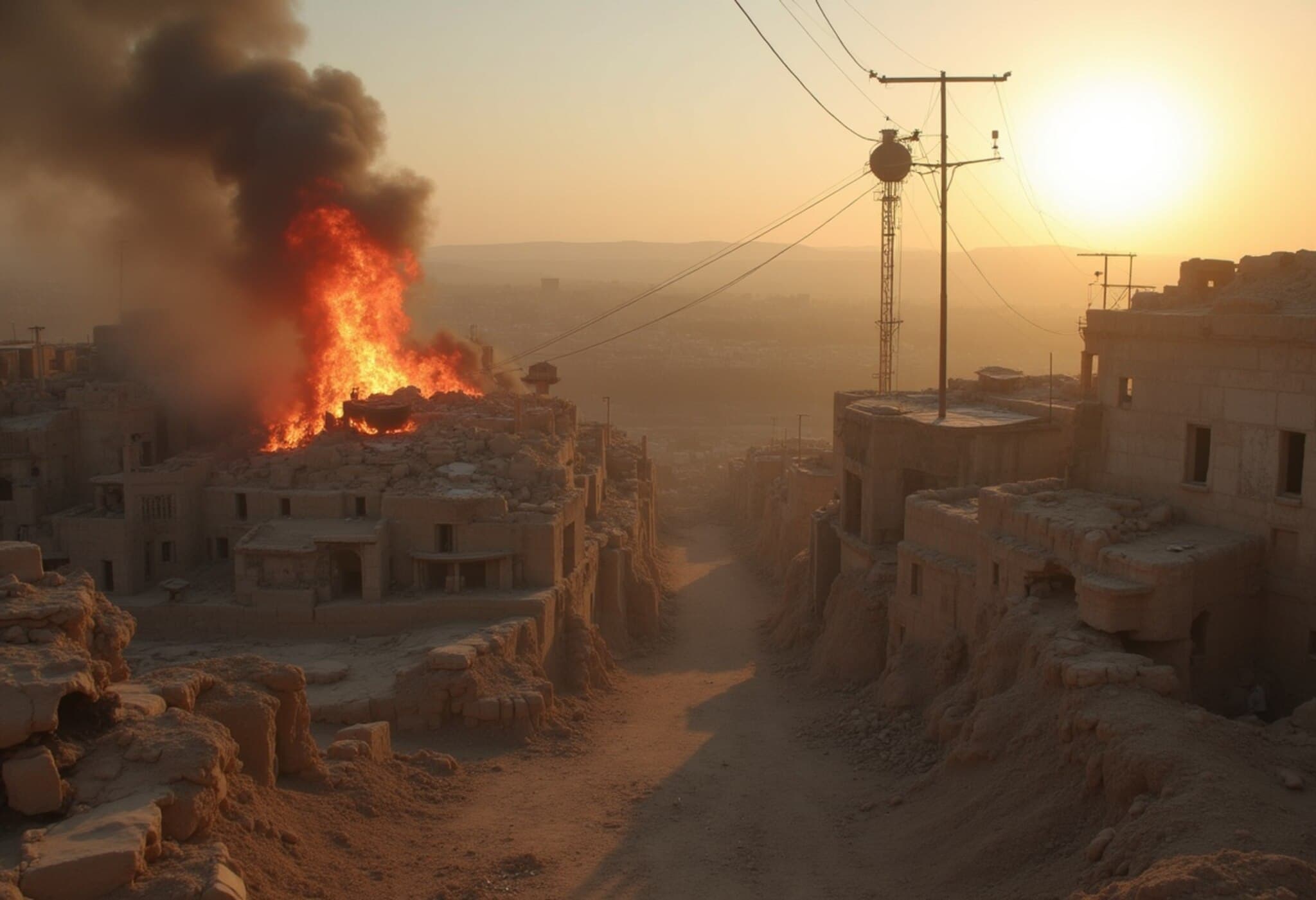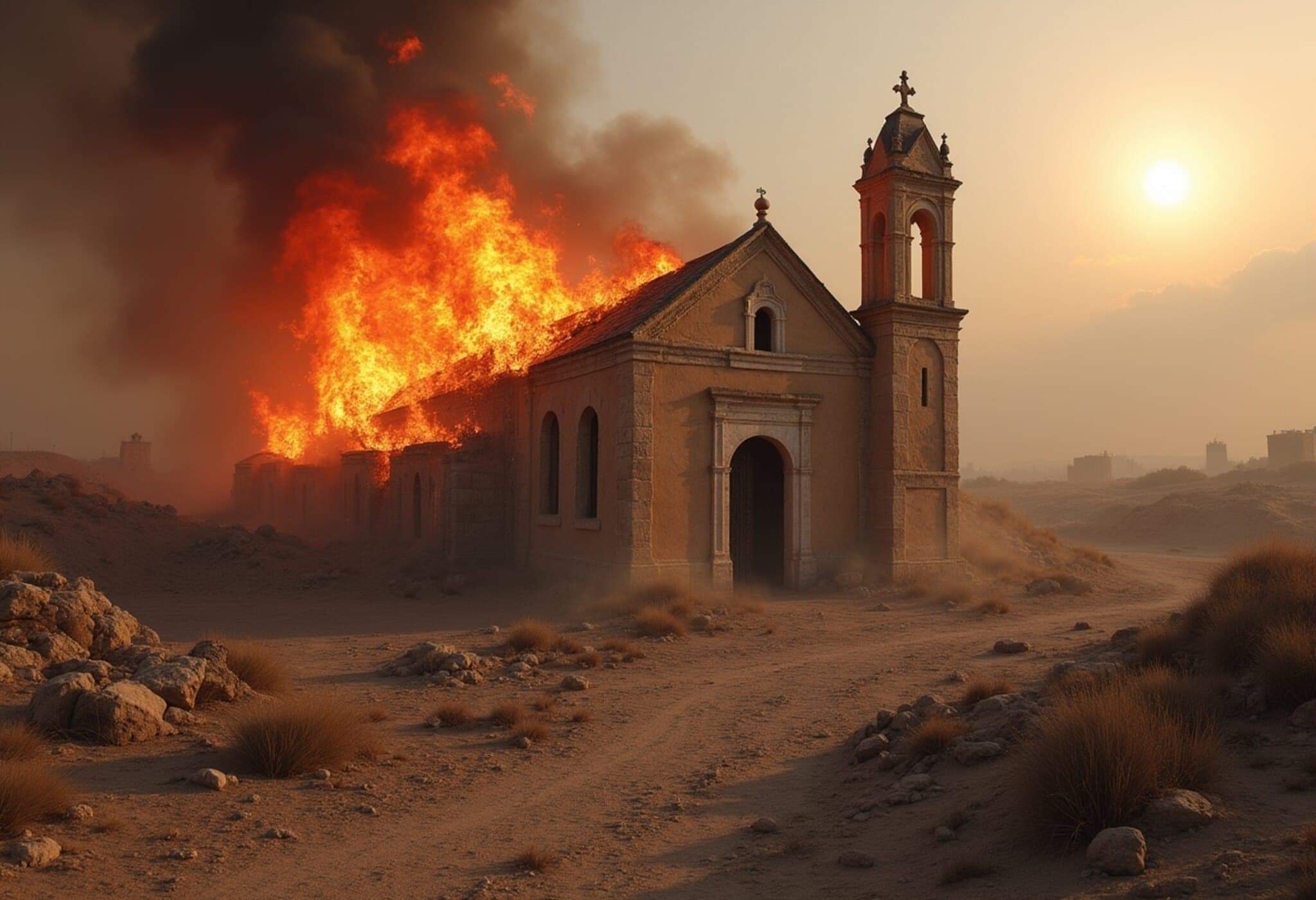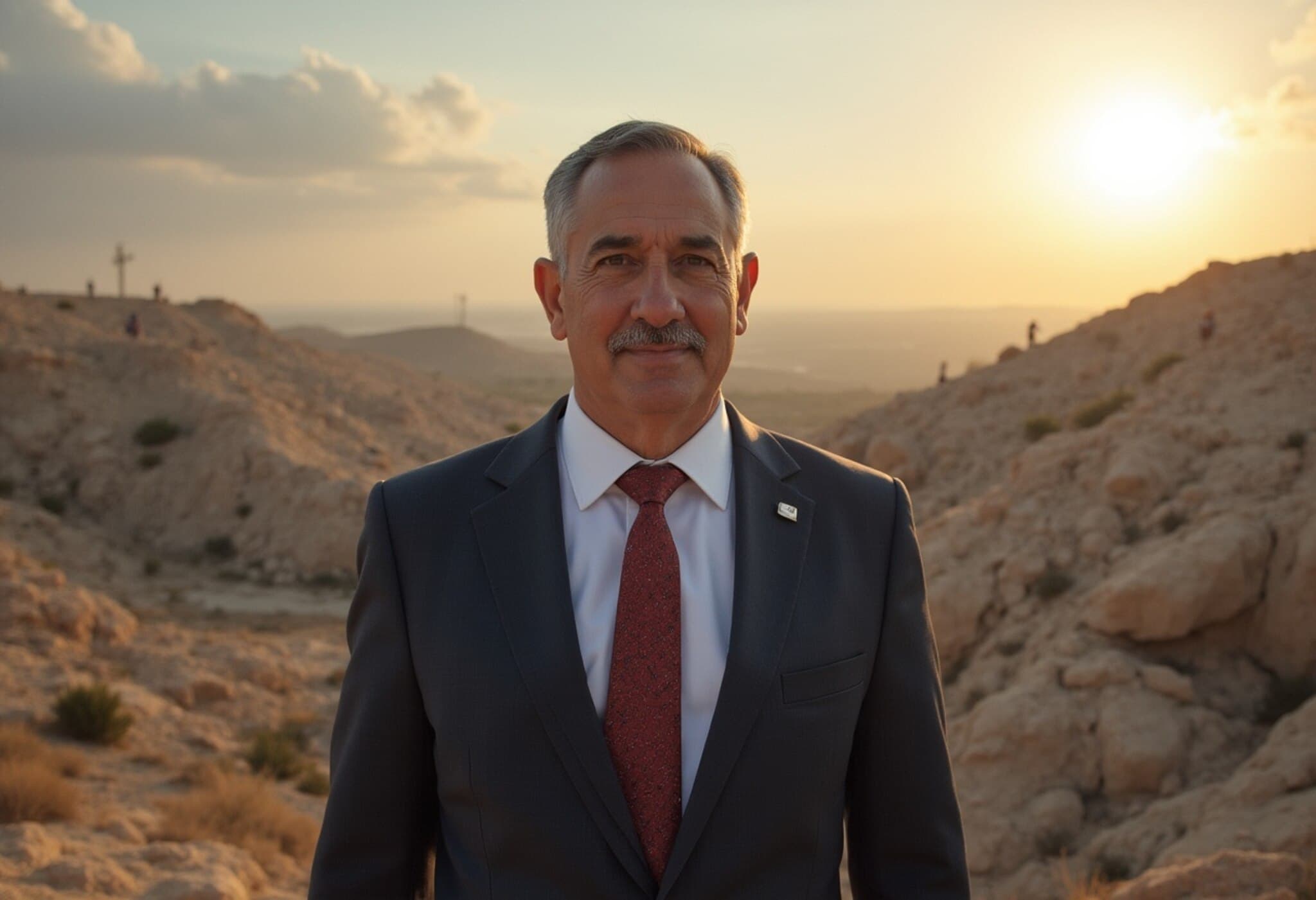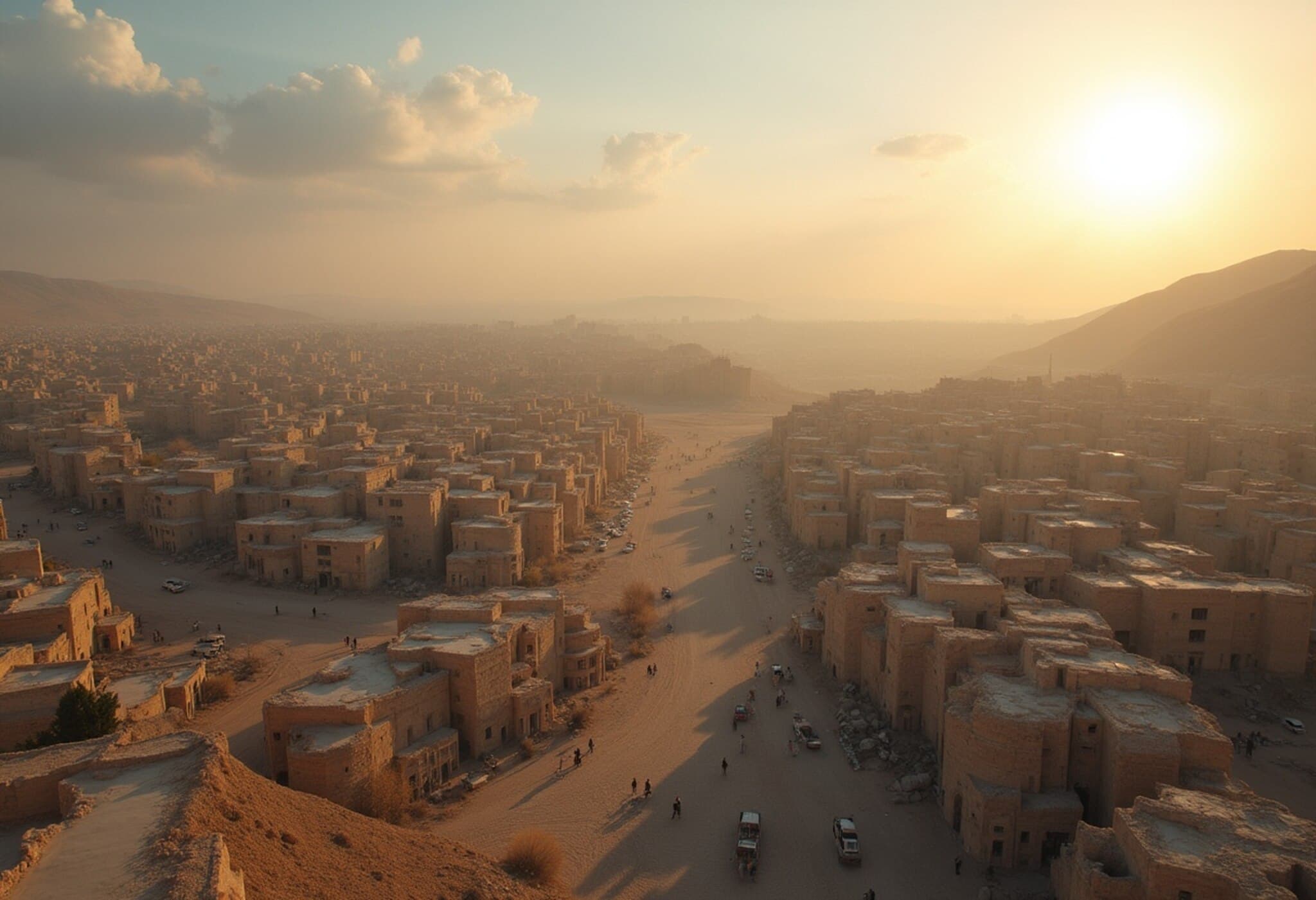Church Leaders Speak Out Against Rising Israeli Settler Violence in West Bank
In a rare and powerful act of solidarity, top Christian church leaders in the Holy Land have publicly condemned the recent escalation of violent acts by Israeli settlers in the occupied West Bank, particularly targeting the predominantly Christian Palestinian village of Taybeh. The Greek Orthodox Patriarch Theophilos III and the Latin Patriarch Pierbattista Pizzaballa visited Taybeh on July 14, 2025, highlighting what they described as a disturbing pattern of aggressive behavior, including arson attacks and land encroachments that threaten the community’s very existence.
Settler Attacks and Land Grabs Spark Outrage
During their visit, the patriarchs decried a recent incident where Israeli settlers reportedly set fire to properties near the Saint George Greek Orthodox Church, a historic landmark that stands as a symbol of Taybeh’s enduring Christian heritage. Charred marks left by the blaze serve as a grim reminder of the tensions in the area. Church leaders accused Israeli authorities of failing to effectively respond to emergency appeals from the Palestinian villagers, suggesting a tacit enabling of settler aggression.
More alarmingly, it was reported that settlers have driven their cattle onto Palestinian lands to graze, further infringing upon the community’s agricultural livelihood. Last month, multiple homes were reportedly torched, and incendiary signs were posted bearing the chilling message: “There is no future for you here.” Such acts not only inflict physical harm but intensify feelings of fear and displacement among Taybeh’s residents.
Calls for Accountability and Rule of Law
In a joint statement, the patriarchs and other Jerusalem church heads called for a thorough investigation into these incidents and urged Israeli authorities to hold the perpetrators accountable. They emphasized the role that local authorities play, often criticized as facilitators enabling the settlers’ unchecked presence around vulnerable Palestinian communities.
The situation in Taybeh reflects a broader context of escalating violence across the West Bank, tied to the ongoing conflict in Gaza. Following large-scale Israeli military operations targeting Palestinian militants, a worrying pattern has emerged: a surge in attacks by settlers and retaliatory Palestinian actions, plunging the region deeper into lawlessness. Patriarch Pizzaballa spoke candidly of this breakdown, lamenting that “the only law is that of power, of those who have the force, not the law.” He urged a return to legal order allowing all residents to seek protection and justice.
Christian Palestinian Communities Face Decline Amid Turmoil
The Christian population in the Israeli-Palestinian territories, already a small minority, has been steadily shrinking over the years due to emigration, lower birth rates, and ongoing instability. With the Holy Land’s deeply rooted Christian communities caught in the crossfire of territorial disputes and violence, many residents face difficult choices about whether to stay or leave their ancestral homes.
Events such as the funeral in nearby Al-Mazraa a-Sharqiya, where hundreds mourned young men killed in settler attacks, underscore the human toll of the conflict beyond headlines and political rhetoric. These realities raise significant questions about the future of not only Palestinian Christians but also the broader prospects for peace and coexistence in the region.
Expert Perspective: The Wider Implications
From a legal and policy standpoint, the situation in Taybeh poses challenging questions regarding Israeli administrative practices in the West Bank, particularly the enforcement of law amid competing claims over land and sovereignty. The international community has long accused Israeli authorities of insufficiently policing extremist settler groups, whose actions jeopardize fragile peace efforts and inflame tensions.
Economically, attacks on agricultural lands and homes undermine the sustainability of small Palestinian communities. They compromise livelihoods tied to farming while exacerbating displacement pressures—factors that contribute to demographic shifts altering the social fabric of the region.
Ultimately, the church leaders’ outspoken condemnation brings vital attention to an underreported dimension of the conflict, emphasizing the need for protection of minority communities and the restoration of law and order as prerequisites for lasting stability.
Editor’s Note
As violence escalates across the West Bank and Gaza, the plight of Christian Palestinians in villages like Taybeh is a poignant reminder of how conflict erodes the social and religious mosaic of the Holy Land. The recent church leaders’ visit and their urgent appeal for justice highlight the critical role that moral authority can play in drawing attention to on-the-ground realities often sidelined in political discourse.
Going forward, it is essential to ask: How can local and international actors effectively intervene to uphold legal protections in contested areas? What measures will ensure vulnerable communities are not further marginalized or displaced? And how might renewed efforts toward dialogue and law enforcement help stem the cycle of violence that threatens all inhabitants of the region?
These questions underscore the complexity of peacebuilding efforts and the urgent need for accountability and human rights to guide policy decisions.















